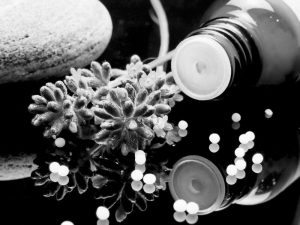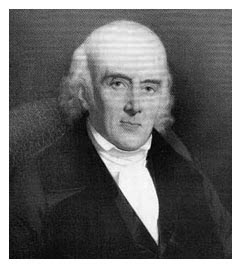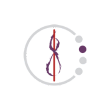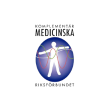Why a series of articles about classical homeopathy?

Classical homeopathy is a versatile, interesting, and especially effective method of treating health. Its application is based on guiding principles developed over 200 years ago and tested and improved in clinical practice. In this way, an excellent system of improving health developed, of which the tenets have more or less stayed the same. Applied correctly, homeopathy can improve the health of patients significantly.
Unfortunately, since about the middle of the nineties, a trend developed where more and more deviated from the original principles or the basic principles were applied selectively. These relatively modern applications keep referring to themselves as classical homeopathy, creating more and more confusion about what classical homeopathy is. The modern interpretations and developments give the impression of speculation, making it difficult to estimate their reliability.
Although many modern ideas contain elements of the original homeopathy, they are often misapplied and accompanied by divergent interpretations.
Since the establishment of our school in 2004, we have noticed a need for reliable and understandable information about classical homeopathy. On the internet, much information is available, but a systematic approach is not easily found.
We are eager to write articles for people interested in homeopathy and would like to read more profound information about this fascinating topic. Regarding the level of the content, we would like to provide information between a layperson and a professional. The series of articles also provide you with an impression of the course classical homeopathy at the Educational Center for Classical Homeopathy.
 When writing the articles, we have the following goals in mind:
When writing the articles, we have the following goals in mind:
- The information must be easily comprehensible. We have written an article for every separate topic.
- The information is reliable. We will ensure that each article has sources and a logical and reliable substantiation.
- The series of articles has a particular logical order. We start with the basic concepts, but later in the series, we will provide more in-depth and detailed theories, applications, and concepts.
- We will discuss the sensible but also nonsensical information about homeopathy. In that way, we will also try to debunk certain myths about classical homeopathy.
- We want to provide insight into the content of the course to become a classical homeopath at the Educational Center for Classical Homeopathy.
What is this series of articles about classical homeopathy not?
This series of articles about classical homeopathy is not intended as a course or training to become a classical homeopath. Becoming a classical homeopath requires, among other things, a lot of (practical) exercise, sound knowledge of theory and materia medica, and practical experience with the repertory. Besides that, an internship supervised by a reliable and experienced homeopath is a minimal requirement to become proficient with classical homeopathy. Therefore, this series of articles is not intended and sufficient to become a classical homeopath, and no rights can be derived from these articles.Sources used
 The work of
Samuel Hahnemann, the founder of homeopathy, is the basis of this series of articles. Besides that, we also used information derived from other homeopaths that are in line with classical homeopathy and added to the development of classical homeopathy. That means they applied homeopathy practically, logically, with common sense, and with the patient’s wellbeing in mind. The common denominator of these homeopaths is that they used the ideas of Hahnemann coherently. We will explain these concepts in several articles in this series.
Famous homeopaths who applied homeopathy in the line of Hahnemann are, among others, James Tyler Kent, William Boericke, George Vithoulkas, Carroll Dunham, Margaret Tyler, Constantine Hering, and Adolph von Lippe. Depending on the subject of the article, we will use other sources. As you can see, we do not base our course based on one (modern) homeopath. We do not idolize one specific homeopath and do not copy ideas indiscriminately.
A special mention about the use of the Organon: when we write about the Organon, we always refer to the 6th edition unless mentioned otherwise.
The work of
Samuel Hahnemann, the founder of homeopathy, is the basis of this series of articles. Besides that, we also used information derived from other homeopaths that are in line with classical homeopathy and added to the development of classical homeopathy. That means they applied homeopathy practically, logically, with common sense, and with the patient’s wellbeing in mind. The common denominator of these homeopaths is that they used the ideas of Hahnemann coherently. We will explain these concepts in several articles in this series.
Famous homeopaths who applied homeopathy in the line of Hahnemann are, among others, James Tyler Kent, William Boericke, George Vithoulkas, Carroll Dunham, Margaret Tyler, Constantine Hering, and Adolph von Lippe. Depending on the subject of the article, we will use other sources. As you can see, we do not base our course based on one (modern) homeopath. We do not idolize one specific homeopath and do not copy ideas indiscriminately.
A special mention about the use of the Organon: when we write about the Organon, we always refer to the 6th edition unless mentioned otherwise. Remarks and contact
If you have questions or comments about the articles, please feel free to contact us.Available articles
Below you can find the articles we have made available.For any system specialized in treating health, it is essential to have a proper idea about what disease and health are. In this article, we would like to explain this concept from the perspective of classical homeopathy. A healthy organism can efficiently and proportionally respond to changes and threats from the environment in order to try to maintain homeostasis and continue existence. When there is disease, you see that these attempts to regain the optimal state and to solve problems are not efficient and proportional. According to Hahnemann, the founder of homeopathy, the life force regulates and coordinates the several systems that take care of this. During the course at the Educational Center for Classical Homeopathy, we teach you extensively and practically to gain insight into these ideas. Read the article What is disease according to classical homeopathy?
In classical homeopathy, we view symptoms differently than conventional medicine and some other alternative therapies do. Samuel Hahnemann, as described in the Organon, stated that a symptom is anything that expresses disease. It is not considered a symptom if it represents a healthy attempt to regain balance. Importantly, in classical homeopathy, the context (taking circumstances into account), the degree of response (which can be excessive or insufficient), and the scope (encompassing more than just the symptoms that may indicate a specific medical diagnosis) are critical. We also distinguish between reactions resulting from a natural or artificial illness because only natural diseases can be treated with classical homeopathy. Read the article What is a symptom according to classical homeopathy?
Totality is a concept that characterizes classical homeopathy. The concept means that we do not look at the symptoms that belong to a particular diagnosis or condition, but at the symptoms of the entire patient. It is not literally all symptoms that are used to find the appropriate remedy, but mainly the symptoms that are characteristic of the individual patient. We mainly use the patient’s characteristic symptoms. Characteristic symptoms consist of PQRS, intense and causal symptoms. The rest are uncharacteristic symptoms. Based on these characteristic symptoms, we choose a potentized agent that best suits the individual patient. We call that the simillimum. Read the article What is the concept of ‘totality’ according to classical homeopathy?
In classical homeopathy, we use a classification based on where the symptoms manifest, in addition to characterizing them as characteristic (PQRS, intense, and causal) or non-characteristic. Thus, we have symptoms that appear locally or generally, physically or mentally. This classification helps in repertory search, differential diagnosis, and analyzing the response to treatment. Read the article How does classical homeopathy classify different types of symptoms?
A significant aspect of homeopathic treatment involves the use of potentised remedies, commonly referred to as ‘homeopathic remedies’. The production process of these remedies was established by the founder of homeopathy, who aimed to create remedies that are safe. The potentisation, or preparation of homeopathic remedies, involves clearly defined ratios of dilution and shaking, as well as stringent quality standards. Read the article What is a homeopathic remedy according to classical homeopathy?
A remedy proving is a key process in classical homeopathy, used to objectively determine which symptoms belong to a specific remedy. Samuel Hahnemann developed this method to test claims for himself. A proving involves selecting participants, a baseline measurement, administering increasingly potentized remedies, and studying the data. In addition to provings, poisonings can offer insights into remedy symptoms. While provings are controlled tests with non-toxic doses, poisonings involve unintentional exposure to toxic amounts. Read the article What is a remedy proving according to classical homeopathy?







